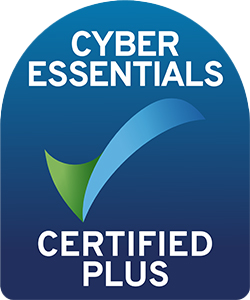Succeeding in a job interview is as much about avoiding mistakes as it is about impressing the interviewer. From unprofessional behavior to poor preparation, certain pitfalls can significantly hinder your chances. This guide will explore key missteps and exactly what not to do in a job interview to ensure you make a positive impression.
If you are looking for a career in the Electronics Engingeering Industry then get in touch with our team today to see if we have the perfect role for you.
Here’s Our List of What Not to do in a Job Interview…
Don’t Go Unprepared
Stepping into an interview without doing some prior research is perhaps the biggest mistake you can make. Understanding the company’s mission, recent developments, and the specifics of the role you’re applying for is essential. This knowledge not only helps you tailor your answers but also shows genuine interest in being part of the company.
Be prepared with our list of great questions to ask the interviewer in your next interview.
Don’t Be Late
Arriving late is nearly always guaranteed to go against you in your application. It not only shows poor time management but it also suggests you are not serious about the role. Aim to arrive about 10-15 minutes early, allowing yourself time to settle and show respect for the interviewer’s schedule.
Don’t Lie on Your CV or in Your Answers
Honesty is important during interviews. Fabricating experiences or skills can lead to uncomfortable situations if you’re asked to elaborate. It’s better to be upfront about your capabilities and express a willingness to learn than to be caught in a lie.
Don’t Talk Too Much or Mumble
Communicating clearly and concisely is key. Rambling can make you seem unfocused or insecure, while mumbling can suggest a lack of confidence. Practice your answers beforehand to keep them sharp and understandable.
Don’t Forget to Turn Your Phone on Silent and Don’t Use it
Your phone should be out of sight and on silent mode during an interview. Checking your phone can appear disrespectful and suggests that you have more important things on your mind than the interview at hand.
Don’t Overlook Your Body Language
Non-verbal cues are powerful. Avoid slouching, excessive gesturing, or negative facial expressions. Positive body language includes smiling, nodding, and maintaining good posture, which collectively imply confidence and attentiveness.
Don’t Swear or Use Offensive Language
Always keep the language professional. Using inappropriate language can be a major red flag for interviewers, indicating a lack of professionalism and possibly offending the interviewer.
Don’t Dress Inappropriately
Dressing for the job you want means understanding the company’s dress code and erring on the side of professionalism. Even if the company has a casual environment, a neat and tidy appearance goes a long way.
A quick search of the company before your interview should give you a good idea of what is appropriate.
Don’t Interrupt or Speak Over the Interviewer
Listening is as important as answering questions and is a key soft skill to master. Interrupting or talking over the interviewer can be perceived as rude or overly assertive. Always wait for your turn to speak.
Don’t Arrive Too Early
While being 10-15 minutes early is good, arriving too early can inconvenience your interviewer. It can also lead to unnecessary stress as you wait. It is important to practice good time management and ensure you can demonstrate this. If you will be in the area early it is best to find a nearby cafe to wait until it is time for the interview.
Don’t Avoid Eye Contact
Maintaining good eye contact demonstrates confidence and interest. It shows the interviewer that you are engaged and respectful.
Don’t Fidget
Fidgeting can be distracting and might convey nervousness. Practice calming your nerves before the interview to appear more composed. Doing your research and being prepared will help you feel more at ease.
Don’t Speak Negatively About Previous Employers or Jobs
It is common to be asked why you left a previous job, however, speaking ill of past experiences can come off as unprofessional and bitter. Instead try to focus on what you’ve learned from past roles and how you’re looking forward to future opportunities.
What Not to do in a Job Interview
Avoiding these common pitfalls will help you present yourself as a composed, respectful, and engaged candidate. Remember, a job interview is your opportunity to show not only that you are capable, but also that you are the right fit for the company culture and team. Make every moment count by steering clear of these missteps. For more tips on how to make the best impression in your interview see our guide on how to impress your interviewer.
Good luck!


